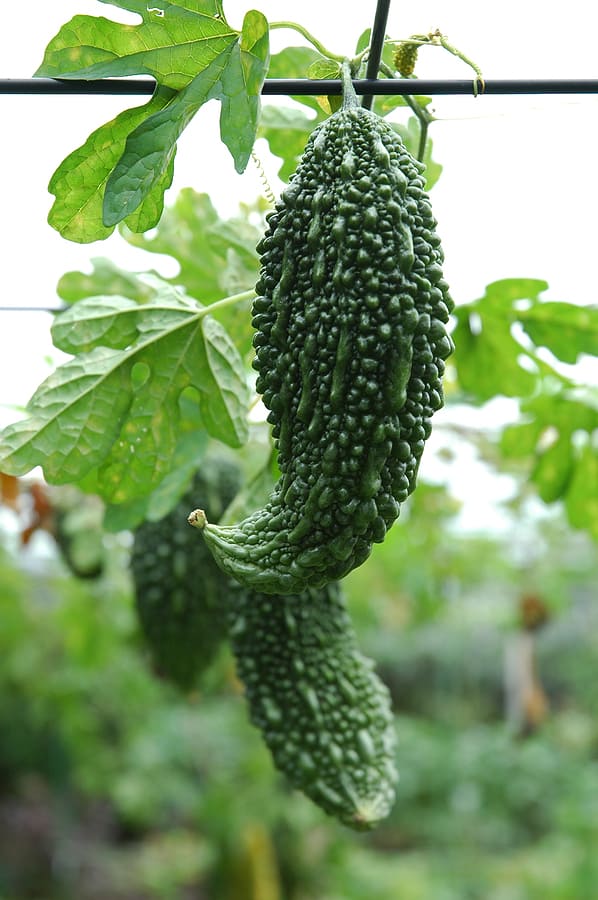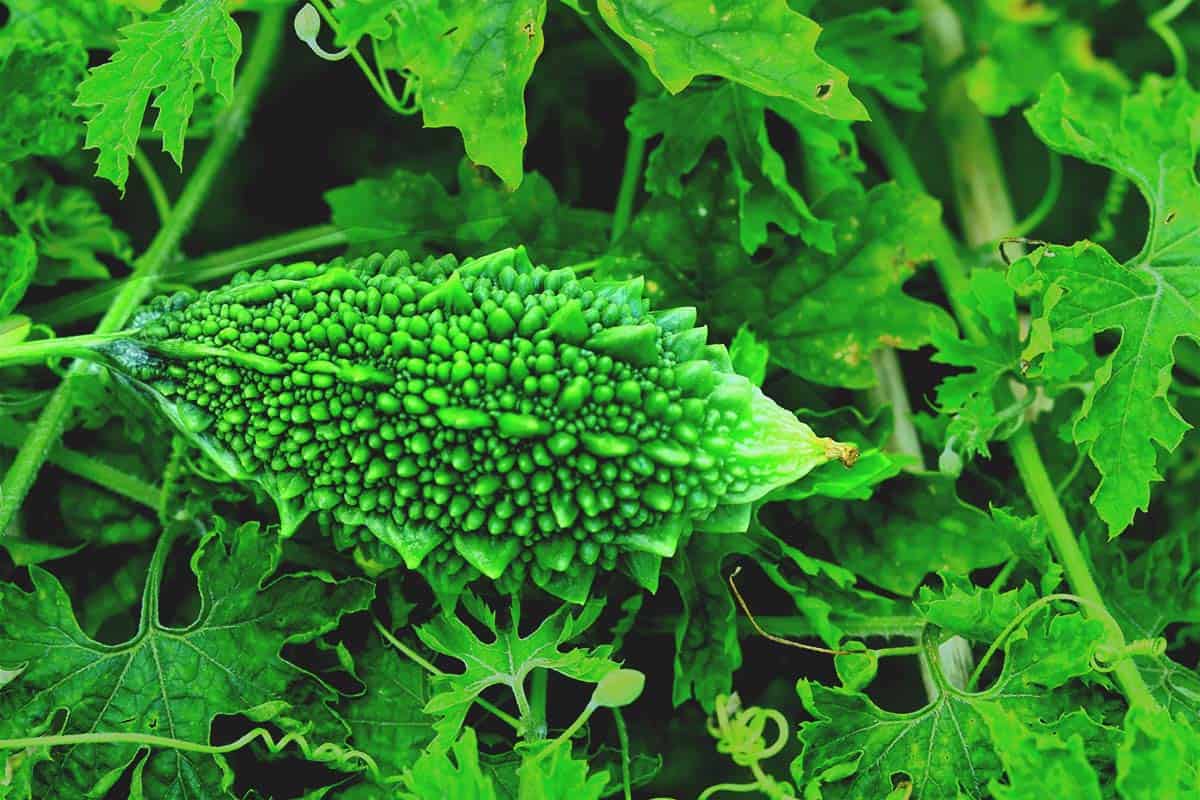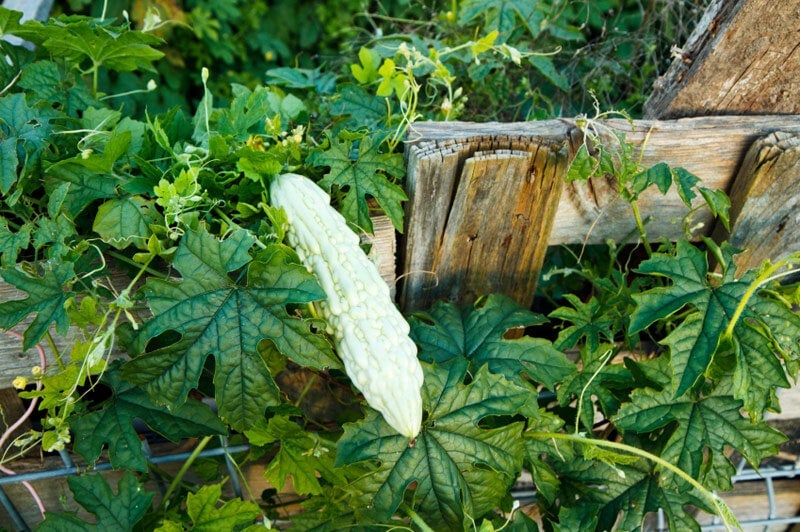Bitter Melon Companion Plants: The Ultimate Guide To Growing A Healthy Harvest
Bitter melon, also known as karela or balsam pear, is a tropical and subtropical vegetable that is known for its bitter taste. However, bitter melon is also a very nutritious vegetable, and it is packed with vitamins, minerals, and antioxidants.
One of the best ways to grow a healthy harvest of bitter melon is to use companion planting. Companion planting is the practice of planting certain types of plants together in order to benefit each other. There are a number of different companion plants that can be beneficial for bitter melon, including:
- Beans: Beans are nitrogen-fixing plants, which means that they can help to improve the soil quality for bitter melon. Beans can also help to deter pests and diseases.
- Corn: Corn provides support for bitter melon vines, and it can also help to attract pollinators.
- Peas: Peas are another nitrogen-fixing plant that can benefit bitter melon. They can also help to suppress weeds.
- Pumpkins: Pumpkins can help to shade the soil around bitter melon plants, which can help to keep the soil cool and moist.
- Squash: Squash can also help to shade the soil around bitter melon plants, and they can also help to deter pests.
In addition to these companion plants, there are a few plants that should be avoided when planting bitter melon. These plants include:
- Potatoes: Potatoes can attract the same pests and diseases as bitter melon, so it is best to avoid planting them together.
- Herbs: Some herbs, such as parsley, mint, and oregano, can inhibit the growth of bitter melon.
By following these companion planting tips, you can help to ensure that your bitter melon plants grow healthy and strong.
Here are some additional tips for growing bitter melon:
- Bitter melon plants need full sun and well-drained soil.
- The soil temperature should be at least 65 degrees Fahrenheit before planting.
- Bitter melon seeds can take 7-10 days to germinate.
- Bitter melon plants need regular watering, especially during the hot summer months.
- Fertilize bitter melon plants every 2-3 weeks with a balanced fertilizer.
- Harvest bitter melon fruits when they are young and tender.
With a little care and attention, you can easily grow a healthy harvest of bitter melon in your garden.
Bitter melon is a versatile vegetable that can be grown in many different climates. It is also a good companion plant, meaning that it can be grown near other plants to benefit both plants. Some good companion plants for bitter melon include beans, corn, peas, pumpkins, and squash. These plants help to attract beneficial insects, deter pests, and improve the overall health of the plants.
For more information about bitter melon companion plants, please visit Garden Wiki.
FAQ of bitter melon companion plants
- What are the best companion plants for bitter melon?
Some of the best companion plants for bitter melon include:
Beans: Beans fix nitrogen in the soil, which is beneficial for bitter melon. They also help to deter pests.
Corn: Corn provides shade for bitter melon, which can help to protect it from the sun. It also helps to attract pollinators.
Peas: Peas help to improve the soil structure, which is beneficial for bitter melon. They also help to deter pests.
Pumpkins: Pumpkins help to suppress weeds, which can help to keep the soil around bitter melon free of competition.
Squash: Squash help to suppress weeds, which can help to keep the soil around bitter melon free of competition.
What are some plants that should not be grown near bitter melon?
Some plants that should not be grown near bitter melon include:
Potatoes: Potatoes and bitter melon compete for nutrients, so they should not be grown together.
Herbs: Herbs can attract pests that can also harm bitter melon.
How do I grow a big bitter melon?
Here are some tips for growing a big bitter melon:
Plant bitter melon in full sun.
Provide bitter melon with well-drained soil that is rich in organic matter.
Water bitter melon regularly, but do not overwater.
Fertilize bitter melon with a balanced fertilizer every few weeks.
Protect bitter melon from pests and diseases.
What is the best way to grow bitter melon seeds?
Bitter melon seeds can be grown directly in the garden. To do this, sow the seeds 15mm deep and 60cm apart, with rows 130-160cm apart. Keep the soil moist but not wet. The seeds should germinate in around 10-15 days at a soil temperature of 25-32°C.
Image of bitter melon companion plants
- Green beans: Green beans are a good companion plant for bitter melon because they help to deter pests.

- Peas: Peas are another good companion plant for bitter melon, as they help to improve the soil nitrogen levels.

- Pumpkins: Pumpkins are a good companion plant for bitter melon because they help to shade the soil, which can help to prevent weeds from growing.

- Squash: Squash is another good companion plant for bitter melon, as it helps to shade the soil and attract pollinators.

- Cucumbers: Cucumbers are a good companion plant for bitter melon because they help to attract pollinators.

- Lettuce: Lettuce is a good companion plant for bitter melon because it helps to suppress weeds.

- Carrots: Carrots are a good companion plant for bitter melon because they help to improve the soil drainage.

- Basil: Basil is a good companion plant for bitter melon because it helps to repel pests.

- Marigolds: Marigolds are a good companion plant for bitter melon because they help to attract pollinators and deter pests.

Post a Comment for "Bitter Melon Companion Plants: The Ultimate Guide To Growing A Healthy Harvest"